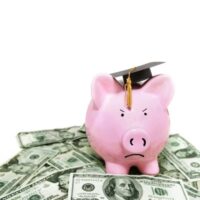My Federal Student Loan Payments Are in Default — Can I File for Bankruptcy?

As of May 5, 2025, the US Department of Education has resumed collection efforts for defaulted federal student loans. For borrowers who have been in default up to this point, there was no need to worry about collection efforts because the Department had paused those collection efforts. In fact, a recent press release underscored that the Department has not collected on federal student loans in default since March 2020, the effective start of the COVID-19 pandemic in the United States.
The end of the collections pause means that debtors who were previously in default, or who are soon likely to default on their federal student loans, may need to consider other options. Although it used to be quite complicated to have federal student loans discharged in bankruptcy, a new process has been in place since late 2022. You might be wondering: if my federal student loans are in default, can I have them discharged in bankruptcy? The answer could be yes. Continue reading to find out more about how you could be eligible to have your student loans discharged in a Chapter 7 bankruptcy case.
What Resumed Collection Efforts Mean for Student Borrowers in Default
What does it mean to be delinquent on your student loans, and what are the consequences of being in default? According to Federal Student Aid, your loan will become delinquent or past due the very first day after you miss a student loan payment—there is no grace period in the way that there is with many other types of bills or payments owed. Then, your loan will remain delinquent up until the time you repay all of the past due amount. Once a student loan is delinquent for 90 days, it gets reported to credit bureaus. At this point, you are at risk of default. Different types of federal loans have different timelines for default, but most types of loans will be in default once you fail to make a payment for 270 days — approximately nine months.
Now that the Department of Education is resuming collections, you could experience serious consequences if you are, or soon become, in default. Your wages can be garnished, you can lose eligibility for various forms of credit, your tax refunds and federal benefits can be withheld, you can be sued, and you may be unable to access your official transcripts.
Filing for Bankruptcy to Have Student Loans Discharged
Filing for bankruptcy and having your student loans discharged can prevent the consequences associated with default.
Under the new process, debtors can seek to have their student loan balance discharged and will now go through a streamlined series of steps that primarily include filling out a 15-page attestation form with financial details. Department of Justice attorneys will review the details in that form to assess your present ability to pay, future ability to pay, and good faith efforts to pay (or seek a deferment or other similar option) in the past to determine whether continuing to pay would impose an undue hardship on your. If the answer is yes, you may be able to have your student loans fully or partially discharged.
Contact Our St. Petersburg Bankruptcy Lawyers Today for Help
Are you struggling with student loans, or are you concerned about your loans that are currently or soon to be in default? If so, you could be eligible to have your educational debt discharged in a bankruptcy case. As we discussed above, the process for having student loans discharged in personal bankruptcy cases has become much more streamlined, and data from the Department of Education suggests that nearly all debtors who sought a discharge of student loans ultimately have received a full or partial discharge with the new system in place. One of the experienced St. Petersburg bankruptcy attorneys at the Law Offices of Stephen Barszcz can speak with you today about having your student loans discharged in bankruptcy. Contact us for assistance.
Sources:
justice.gov/archives/opa/pr/justice-department-and-department-education-announce-continuing-success-student-loan
ed.gov/about/news/press-release/us-department-of-education-begin-federal-student-loan-collections-other-actions-help-borrowers-get-back-repayment
studentaid.gov/manage-loans/default






